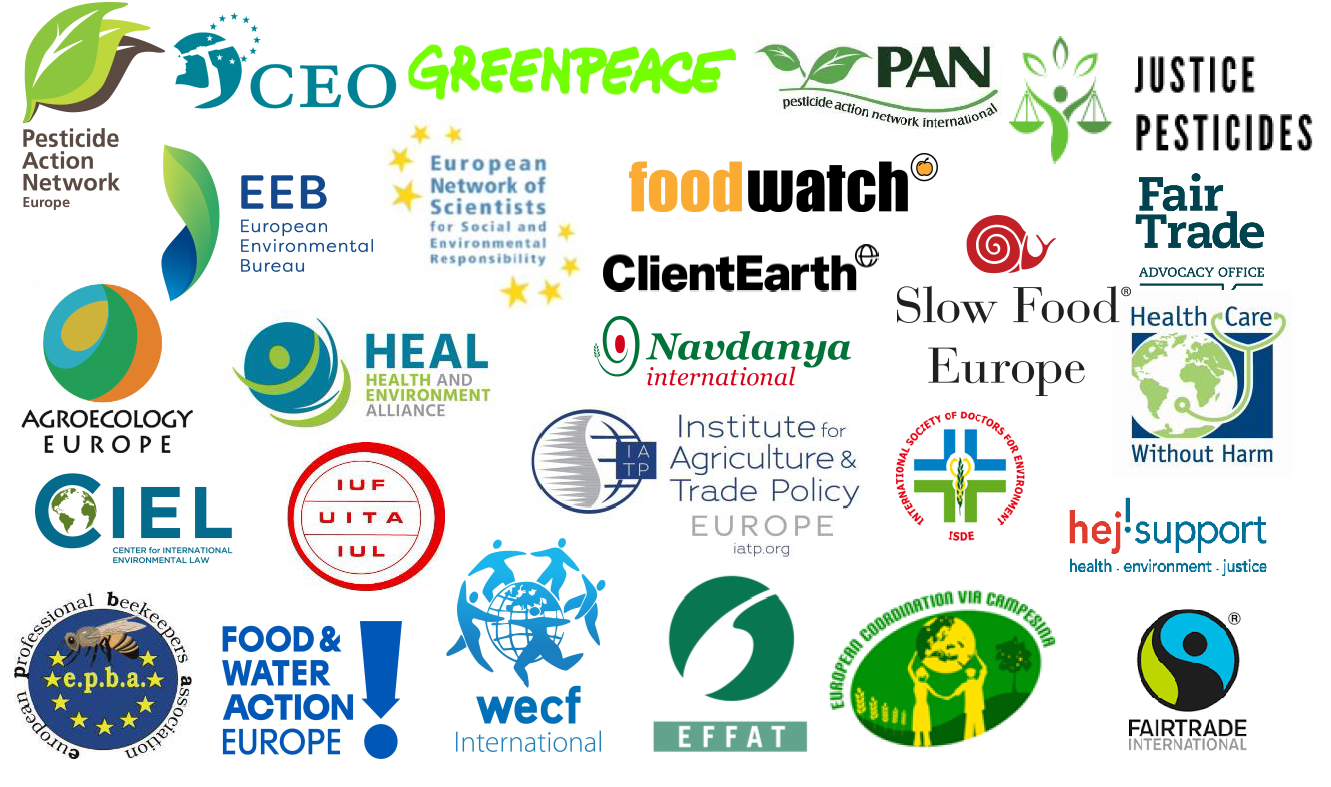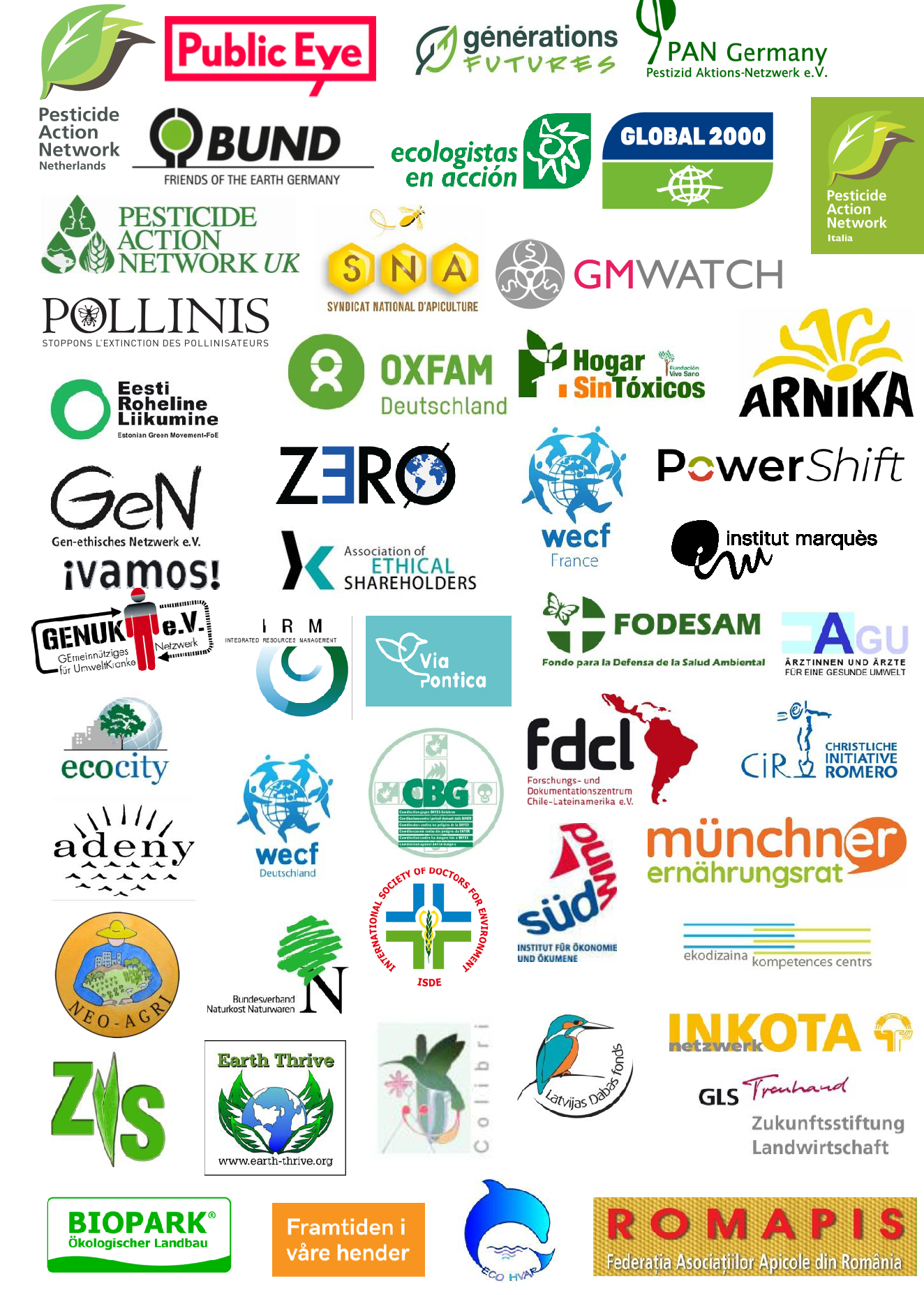76 organizations from across Europe have signed a letter to the European Commission Executive Vice-President, Frans Timmermans, calling for a stop to the approval and export pesticides containing substances banned in Europe, which later return through food imports.
To:
First Executive Vice-President Frans Timmermans Health & Food Saftey Commissioner Stella Kyriakides Agriculture Commissioner Janusz Wojciechowski
Environment, Oceans & Fisheries Commissioner Virginijus Sinkevičius
Subject: Prohibiting the export of banned pesticides and the import of food produced with these chemicals
Dear First Executive Vice President, Dear Commissioners,
We, the undersigned civil society organisations, are writing to ask you to prohibit not only the export of hazardous pesticides that are banned in the EU, but also the import of food and agricultural goods produced with such pesticides outside the EU.
Export of banned pesticides
In July this year, 36 United Nations human rights experts issued a statement calling on the EU and other wealthy nations to end the “deplorable” practice of exporting banned toxic chemicals, including pesticides, to poorer countries with weaker regulations.
An in-depth investigation has shown that, in 2018 alone, EU member states approved the export of more than 81,000 tonnes of pesticides containing 41 hazardous chemicals that have been banned for agricultural use in the EU, in order to protect human health and/or the environment.
Most exports of these hazardous pesticides went to low- and middle-income countries, which lack the capacity to control the substances’ risks throughout their life cycle, and where they result in widespread human rights violations and devastating impacts on human health, biodiversity, ecosystems and the environment.
Against this background, we welcome the European Commission’s commitment, under the Chemicals Strategy for Sustainability, to “ensure that hazardous chemicals banned in the European Union are not produced for export”, and under the REFIT evaluation of the Pesticides and MRLs Regulations to “use all its diplomacy, trade policy and development support instruments” to promote a global phase-out of pesticides that are no longer approved in the EU.
Whilst we recognise that an EU ban on such exports will not by itself achieve a global ban, we strongly believe that a global transition away from the use of hazardous pesticides cannot be accomplished unless the EU takes the lead and stops these exports.
Import of food produced with banned pesticides
Some of these hazardous pesticides find their way back to Europe as residues in imported food. In fact, the countries that are the EU’s most important sources of imported agri-food products are all among the top destinations for the EU’s exports of banned pesticides.
As recent research has shown, the residues of 74 pesticides banned in the EU were found in food tested on the European market in 2018. Among the pesticides concerned, 22 were exported from Europe that same year.
The import of food that has been treated with pesticides banned in the EU puts European farmers in a position of unfair competition. It also jeopardises the health of agricultural workers, of the general population and that of the environment in producing countries, and may even put the health of European consumers at risk.
The EU should ensure that no banned pesticides are allowed as residues in food and agricultural goods placed on the European market.
French example
In 2018, France wrote into law a ban on the production, storage, distribution and export of plant protection products that contain active substances that have not been approved in the EU for reasons related to the protection of human health or the environment, as of January 2022. This ban will also apply to the import of foods produced with such pesticides.
We are asking you to follow this example, and to urgently take steps to ban both the export of all pesticides that are banned in the EU in order to protect human health or the environment, and the import of food and agricultural goods made with such pesticides.
Global phase-out of hazardous pesticides
Maintaining the current practice would contradict the European Green Deal and the Commission’s commitment under the Farm to Fork Strategy – and the most recent Chemical Strategy for Sustainability – to promote safety and sustainability standards outside the EU in order to achieve sustainable food systems “not only within its borders, but also outside”.
The EU has a global leadership role to play on these issues and can help to achieve an international consensus that these abhorrent practices, which result in discrimination and exploitation, must end. This could be achieved by establishing a new UN mechanism to promote a phase-out of highly hazardous pesticides globally in cooperation with FAO, WHO, UNEP and ILO.
Brussels, 05/11/2020
Signatories-international

Signatories National

Signatories (alphabetically)
International
Agroecology Europe
Center for International Environmental Law (CIEL)
ClientEarth
Corporate Europe Observatory (CEO)
European Federation of Food, Agriculture and Tourism Trade Unions (EFFAT)
European Coordination Via Campesina (ECVC)
European Environmental Bureau (EEB)
European Network of Scientists for Social and Environmental Responsibility (ENSSER)
European Professional Beekeepers Association (EPBA)
Fair Trade Advocacy Office Fairtrade International
Food & Water Action Europe
foodwatch
Greenpeace European Unit
Health and Environment Alliance (HEAL)
Health Care Without Harm (HCWH) Europe
Health and Environment Justice Support (HEJ Support)
Institute for Agriculture and Trade Policy Europe (IATP)
International Society of Doctors for the Environment (ISDE)
International Union of Food, Agricultural, Hotel, Restaurant, Catering, Tobacco and Allied Workers‘ Associations (IUF)
Justice Pesticides
Navdanya International
Pesticide Action Network Europe
Pesticide Action Network International
Slow Food Europe
WECF International
National
Arnika
Association de défense de l’environnement et de la nature de l’Yonne (ADENY)
Association of Ethical Shareholders Germany Austrian Doctors for the Environment (AeGU)
Biopark e.V.
BUND/Friends of the Earth Germany Bundesverband Naturkost Naturwaren (BNN) e.V.
Christian Initiative Romero (CIR)
Colibri Association
Coordination gegen BAYER-Gefahren
Earth Thrive
Earth Trek/Zemljane staze
ECOCITY
Ecodesign Competence Centre
Eco-Hvar
Ecologistas en Acción
Ernährungsrat München
Estonian Green Movement
FDCL – Center for Research and Documentation Chile-Latin America
Fodesam
Framtiden i våre hender
Generations Futures
Gen-ethische Netzwerk (GeN)
GENUK e.V. [Gemeinnütziges Netzwerk für Umweltkranke]
GLOBAL 2000
GLS – Zukunftsstiftung Landwirtschaft
GMWatch
Hogar sin Tóxicos (Foundación Vivo Sano)
Inkota
Institut Marquès
Integrated Resources Management Co ltd (IRMCo)
ISDE Italy
Latvian Fund for Nature Neo-Agri
Oxfam Germany
Pesticide Action Network Germany
Pesticide Action Network Italy
Pesticide Action Network Netherlands
Pesticide Action Network UK P
OLLINIS
PowerShift e.V.
Public Eye
SNA- Syndicat national d’Apiculture
SÜDWIND e. V. – institute for economy and ecumenism
The Cancer Prevention and Education Society
The Federation of the Romanian Beekeeping Associations (ROMAPIS)
Vamos
Via Pontica Foundation
WECF -France
WECF -Germany
ZERO – Associação Sistema Terrestre Sustentável
